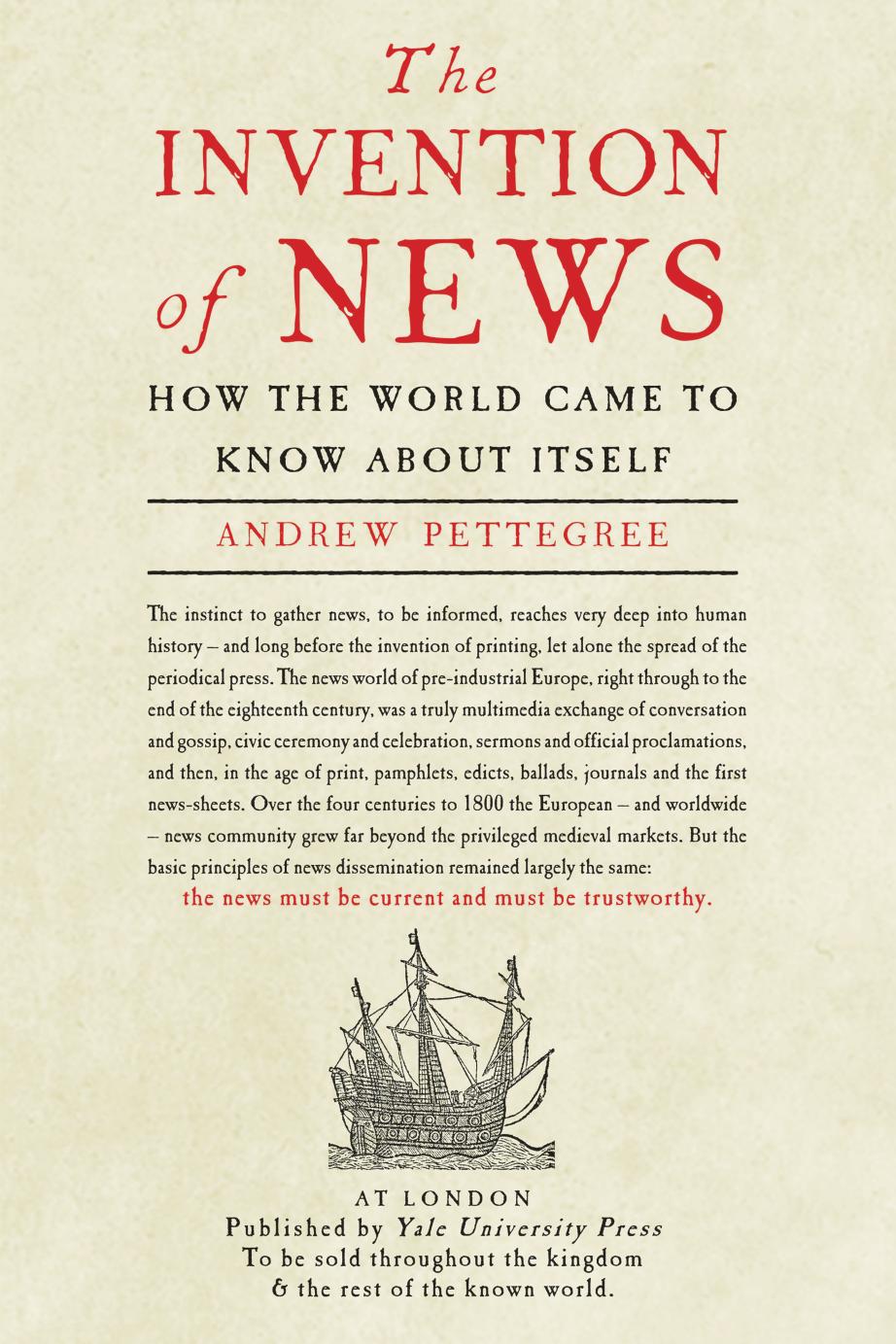The Invention of News: How the World Came to Know About Itself by Andrew Pettegree

Author:Andrew Pettegree [Pettegree, Andrew]
Language: eng
Format: epub, mobi, pdf
ISBN: 9780300179088
Publisher: Yale University Press
Published: 2014-01-31T20:00:00+00:00
An unintended victim of this crisis was the Licensing Act, which had been due for renewal and now lapsed. The collapse of the Gazette’s monopoly led to a flurry of new publications, many of them openly hostile to the court, and supportive of James's exclusion. Aware that in the circumstances Parliament would hardly sanction the return of licensing, the king struck back through the courts, obtaining a judgment that ‘His Majesty may by law prohibit the printing and publishing of all News-Books and Pamphlets of news whatsoever, not licensed by his Majesty's authority, as manifestly tending to the breach of the peace, and disturbance of the kingdom’.29 A proclamation to this effect brought some temporary respite, but by 1681, as the Exclusion Crisis reached its Parliamentary climax, London newsmen were no longer sufficiently intimidated by the fear of retribution to abstain from publication. This year and 1682 saw a wave of new, mostly short-lived London papers. It was only in the summer of this year, as the king at last succeeded in re-establishing control, that the opposition papers were suppressed. When, in 1685, James II succeeded to the throne, the Licensing Act was restored, and with it the Gazette’s exclusive privilege.
The Exclusion Crisis proved a false dawn for English newspapers. The public hysteria over the Popish plot was in fact at its most intense when the Licensing Act and Gazette monopoly were still in force; and the Gazette, with its stolid diet of largely foreign news, had certainly done nothing to feed public concerns. Yet something was clearly afoot. A genuine groundswell of public anxiety combined with the emergence in the political nation of what amounted to an organised political faction bent on opposing the king's will through Parliamentary action. In these years we can detect the origins of the combinations that became, through the dramas of the Glorious Revolution and the Hanoverian Succession, organised political parties, the Whigs and Tories. How was this debate conducted?
Jürgen Habermas was not the first to point the finger at the London coffee houses. Although the first of London's coffee shops had opened only in 1652, by 1670 they were a well-established institution, each with their own character and particular clientele.30 Here men of business came to drink a dish of coffee, converse and hear the latest news. Proprietors were careful to ensure that they supplied their patrons with the current news-sheets: the Gazette certainly, but also occasional pamphlets of current affairs, and commercial manuscript newsletters. Henry Muddiman had built a lucrative commercial service alongside his official despatches, but he was not alone. In the 1670s opposition writers, notably the notorious Whig newsman Giles Hancock, created their own networks of clients. The manuscript newsletters successfully supplied the appetite for news left unsatisfied by the austere policies of the Gazette; pamphlets, rumour and private correspondence did the rest.
As opposition began to make itself felt in the 1670s, Charles II's ministers were all too aware of the role that coffee houses played in the circulation of information.
Download
The Invention of News: How the World Came to Know About Itself by Andrew Pettegree.mobi
The Invention of News: How the World Came to Know About Itself by Andrew Pettegree.pdf
This site does not store any files on its server. We only index and link to content provided by other sites. Please contact the content providers to delete copyright contents if any and email us, we'll remove relevant links or contents immediately.
Asking the Right Questions: A Guide to Critical Thinking by M. Neil Browne & Stuart M. Keeley(5778)
Autoboyography by Christina Lauren(5240)
Eat That Frog! by Brian Tracy(4543)
Dialogue by Robert McKee(4406)
Sticky Fingers by Joe Hagan(4204)
Journeys Out of the Body by Robert Monroe(3625)
Annapurna by Maurice Herzog(3474)
Full Circle by Michael Palin(3452)
Schaum's Quick Guide to Writing Great Short Stories by Margaret Lucke(3383)
Elements of Style 2017 by Richard De A'Morelli(3351)
The Art of Dramatic Writing: Its Basis in the Creative Interpretation of Human Motives by Egri Lajos(3070)
Atlas Obscura by Joshua Foer(2964)
Why I Write by George Orwell(2957)
The Fight by Norman Mailer(2945)
The Diviners by Libba Bray(2939)
In Patagonia by Bruce Chatwin(2935)
The Mental Game of Writing: How to Overcome Obstacles, Stay Creative and Productive, and Free Your Mind for Success by James Scott Bell(2909)
Venice by Jan Morris(2578)
The Elements of Style by William Strunk and E. B. White(2476)
